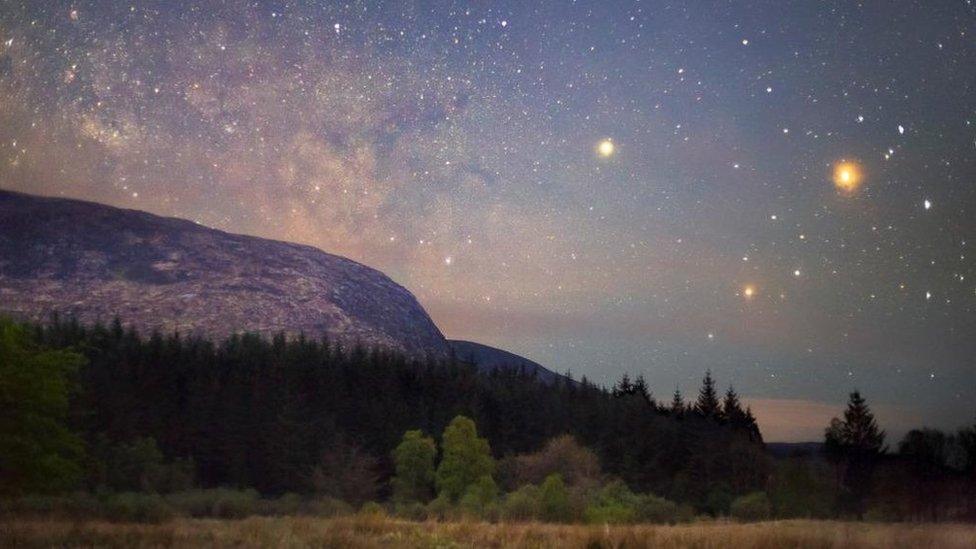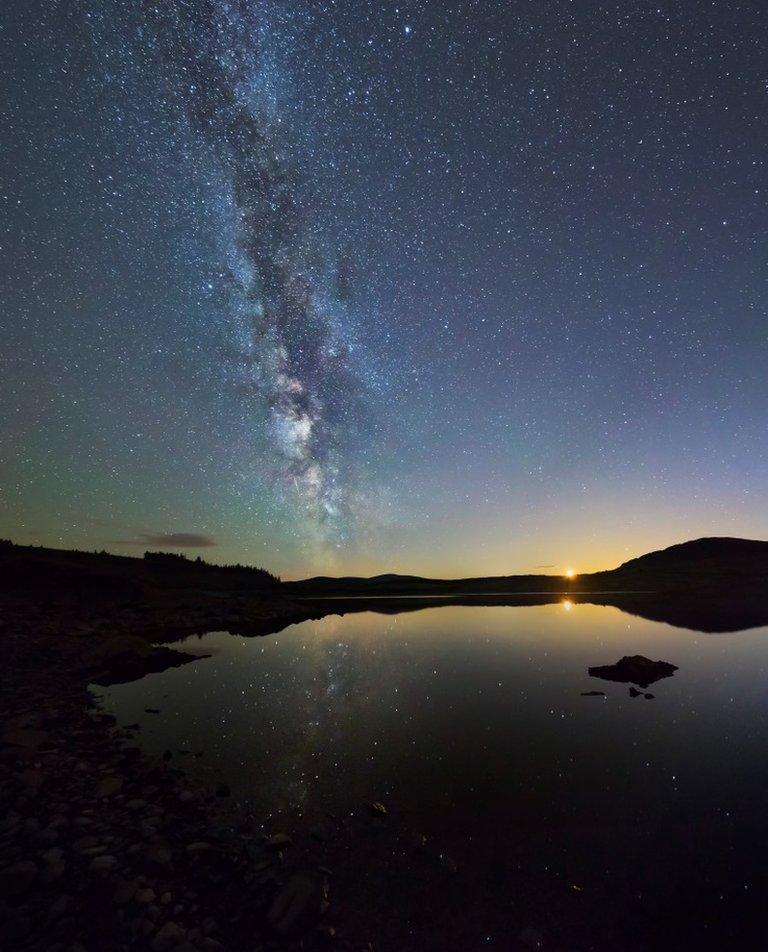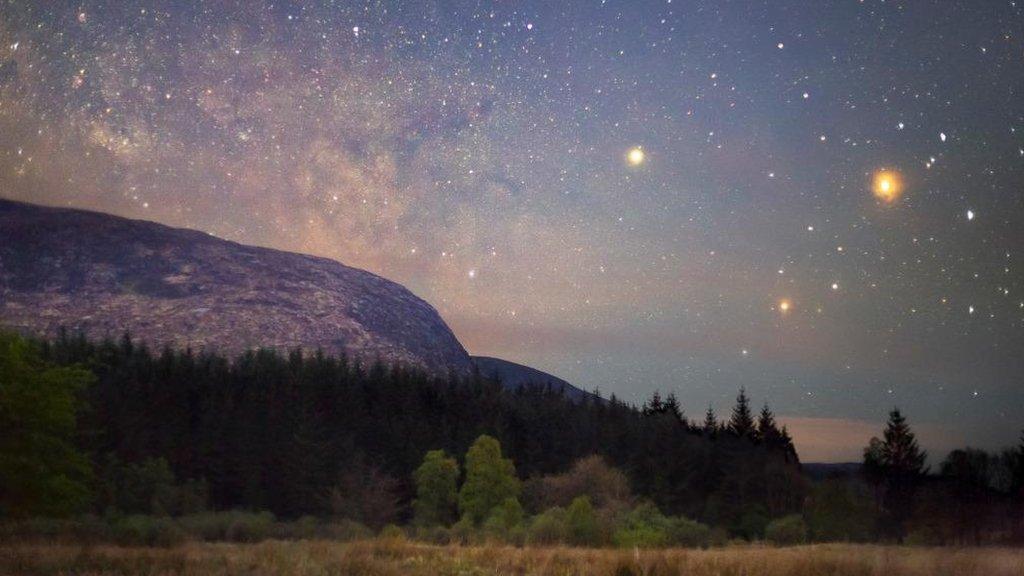Experts gather for Europe's first dark sky conference
- Published

Dark sky experts are gathering for the first European conference - which is being staged in southern Scotland.
The three-day event is taking place in Gatehouse of Fleet in Dumfries and Galloway.
The nearby Galloway Forest Park was the first area in Europe to achieve dark sky park status.
Organisers said they hoped the conference would further help to cement south west Scotland's reputation as a premier destination for stargazing.
The conference will bring together some of the world's top dark sky experts with the aim of promoting rural development, tourism and tackling light pollution issues.
Astronomers, town planners, lighting specialists, environmentalist and academics will attend to discuss the benefits that dark sky status can bring.
Environment Secretary Roseanna Cunningham gave the keynote speech.

"Scotland's natural environment, including its dark sky places, is one of its unique selling points and one that we should never take for granted," she said.
"Dark sky places have an important part to play in raising awareness of light pollution and its effects on people and the environment.
"However, we can share best practice and use more efficient technologies to reduce energy consumption and overall light pollution."
She said dark sky places could improve the environment and provide a "big attraction" for stargazers from all over the world, helping to boost the economy.
"It's a win win situation," she said.
Dark sky rangers
The conference has been organised by Galloway and Southern Ayrshire Biosphere (GSAB), the International Dark Sky Association (IDSA) and Forest Enterprise Scotland (FES), which manages the Galloway Forest Dark Sky Park.
FES visitor services manager Keith Muir said a lot had been achieved since the park reached dark sky status.
"We set it up on the back of bringing people into the south west of Scotland over the winter months," he said.
He said an impact study in 2012/13 had shown it was generating about £500,000 for the local economy.
However, with the introduction of dark sky rangers and more events he believes that figure will have risen further.
"It has developed greatly and I would estimate we are easily up around about the £800,000 mark a year now just on dark skies alone and that's a big thing," he said.
Environmental issues
Mr Muir added that there would be some important issues on the agenda over the three days.
"There's the straight fact that we are losing the ability to see our night sky," he said.
"The stars are not just used by us in lots of different ways but they are also used by migrating birds and everything else to actually navigate by.
"Light pollution is causing all sorts of health issues and there is lots of research out there saying that we are only just beginning to see the long-term effects of that.
He said there were also environmental issues related to energy use.
"We spend hundreds of millions of pounds lighting our streets," he said.
"If we were to do something about that - not just about putting in better lighting but actually using less power - then we would be saving us all a lot of money, saving the government a lot of money and saving the planet from a whole load of other things that go round as well.
"But we are not there yet."
- Published6 February 2017
